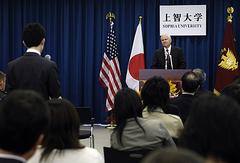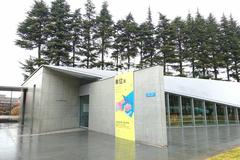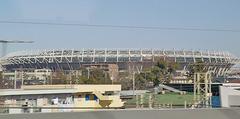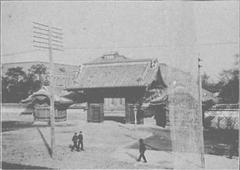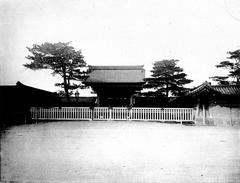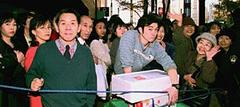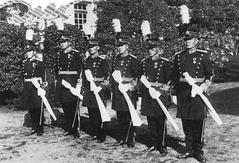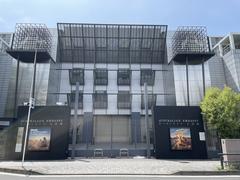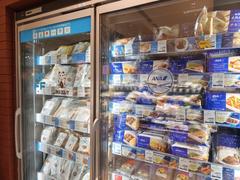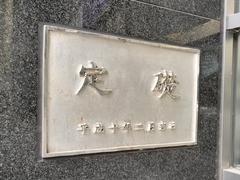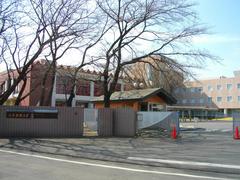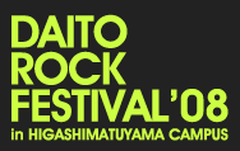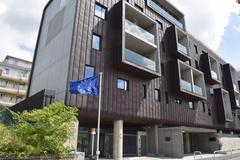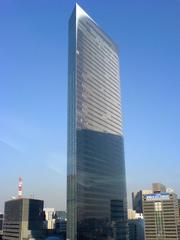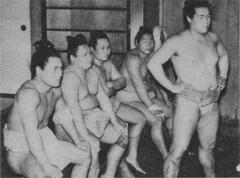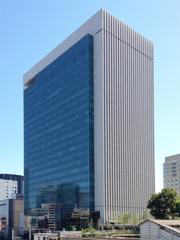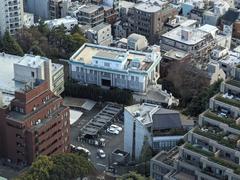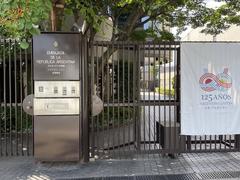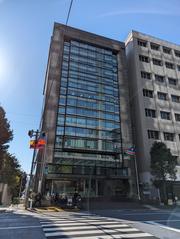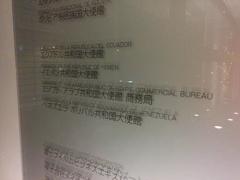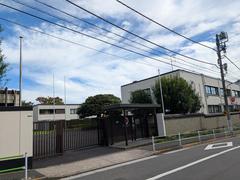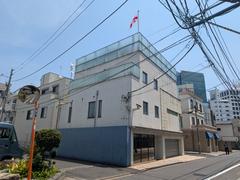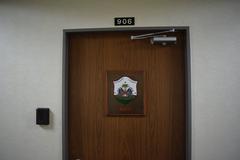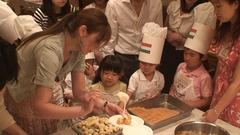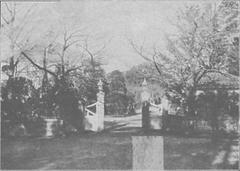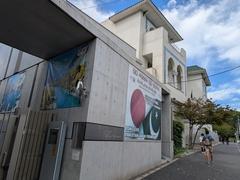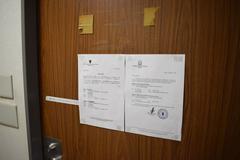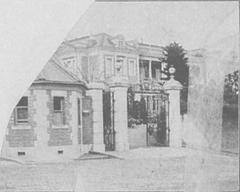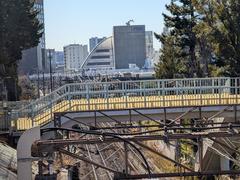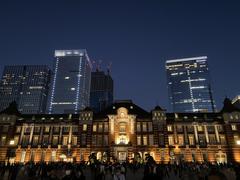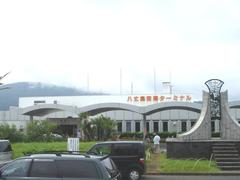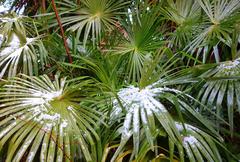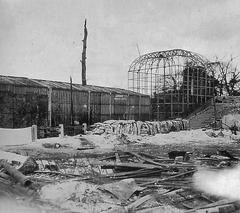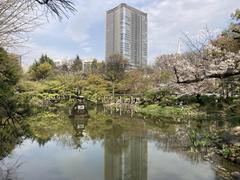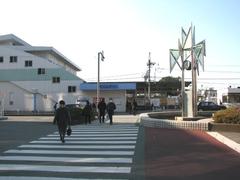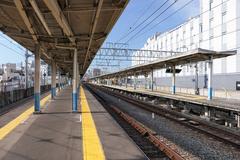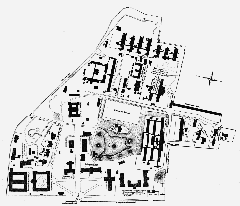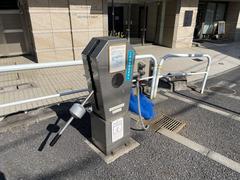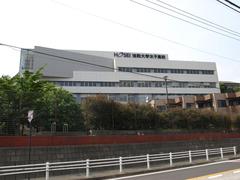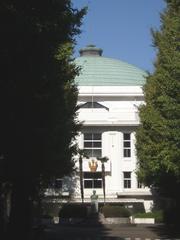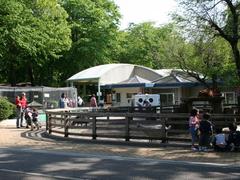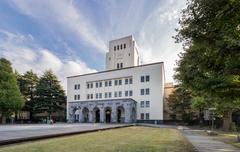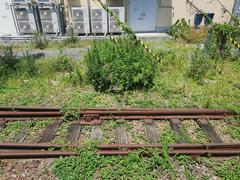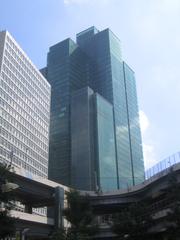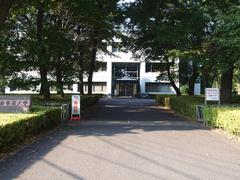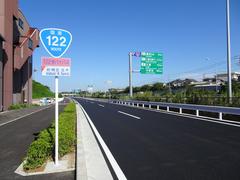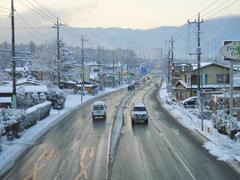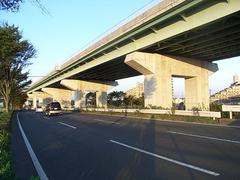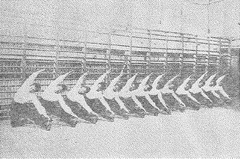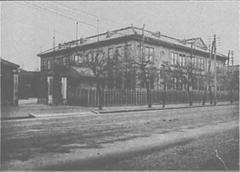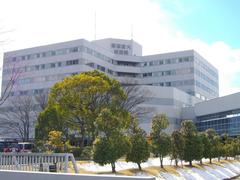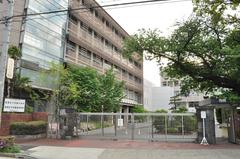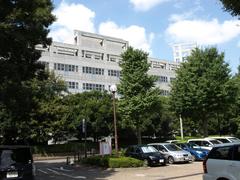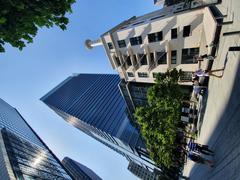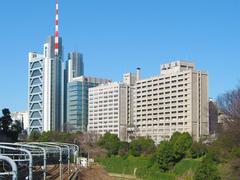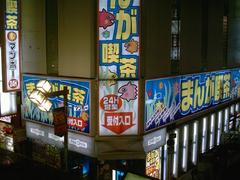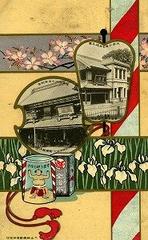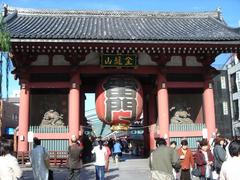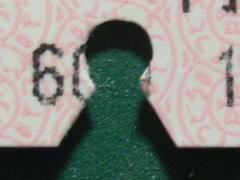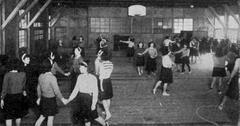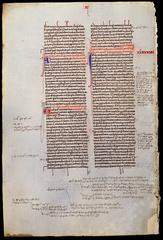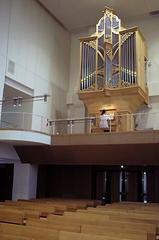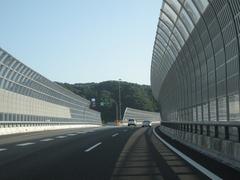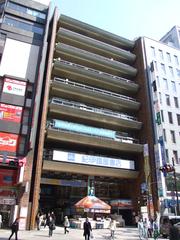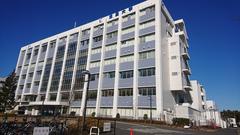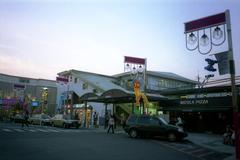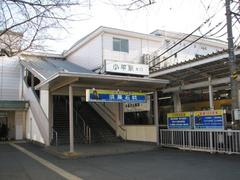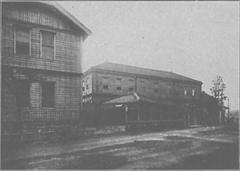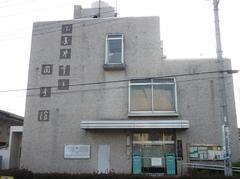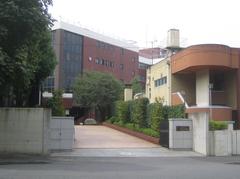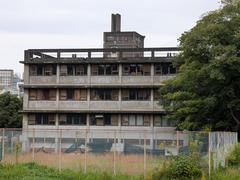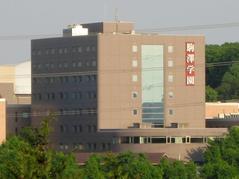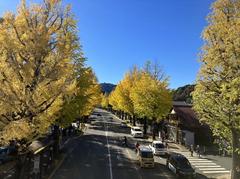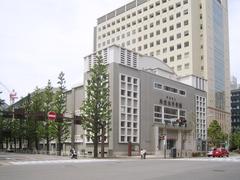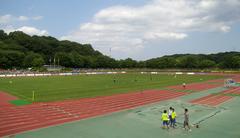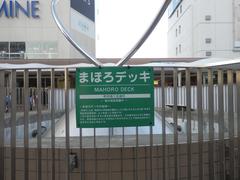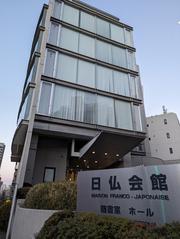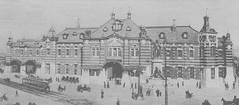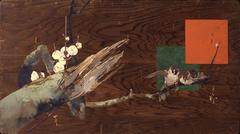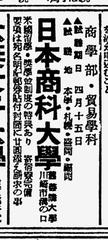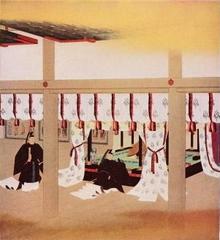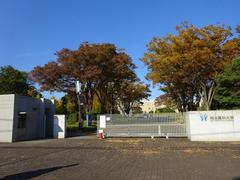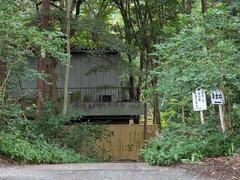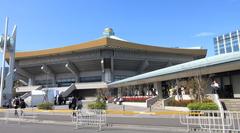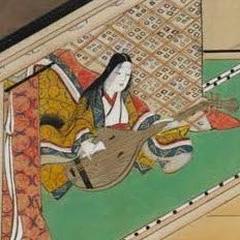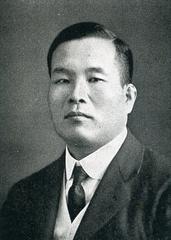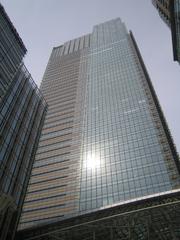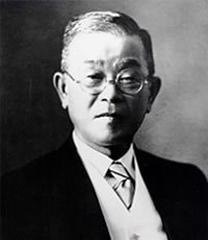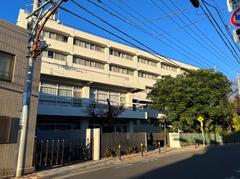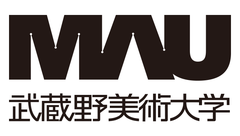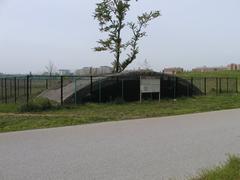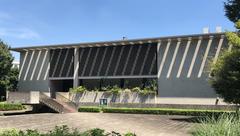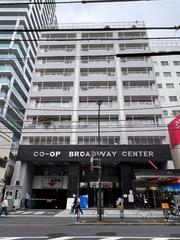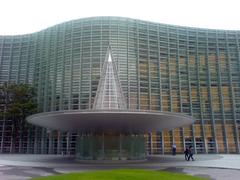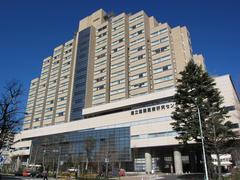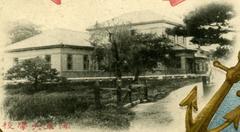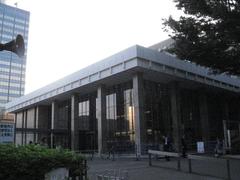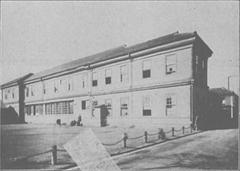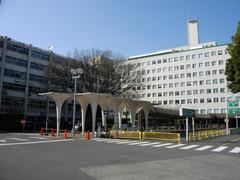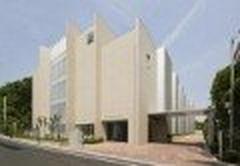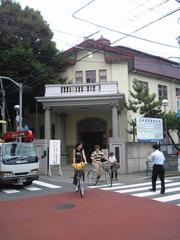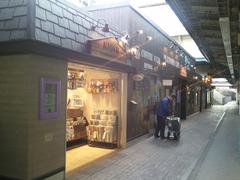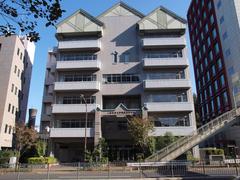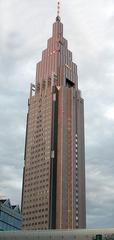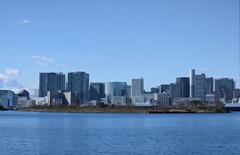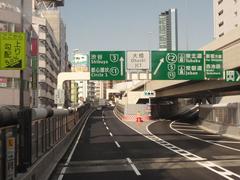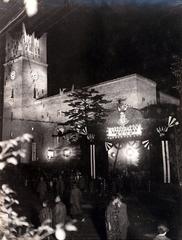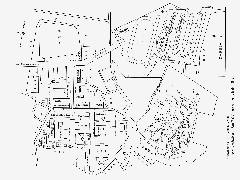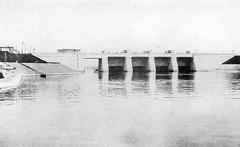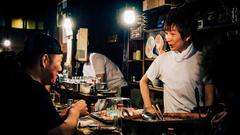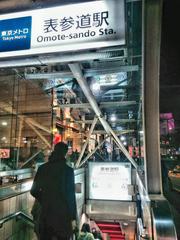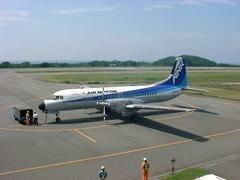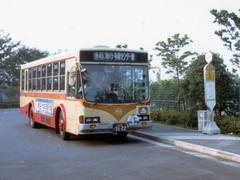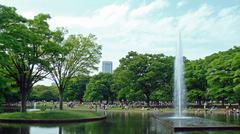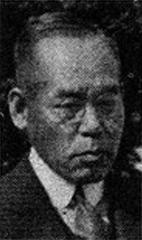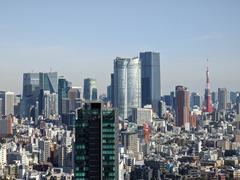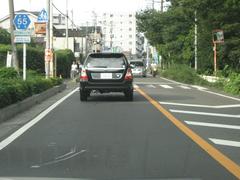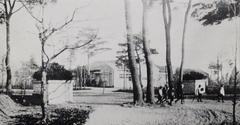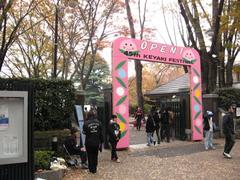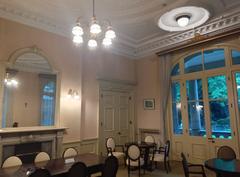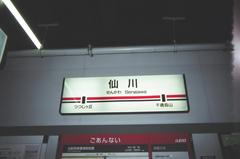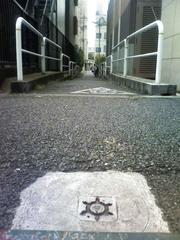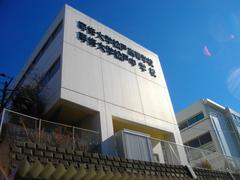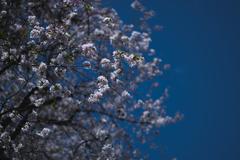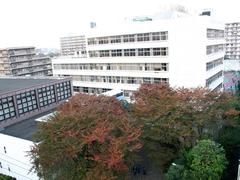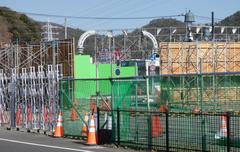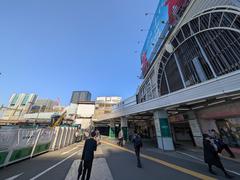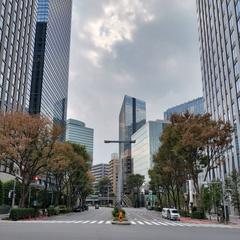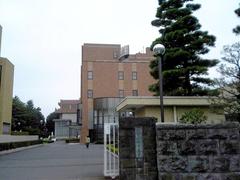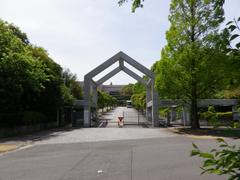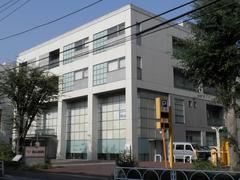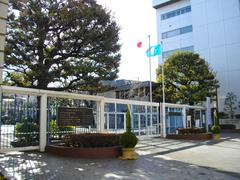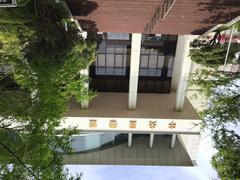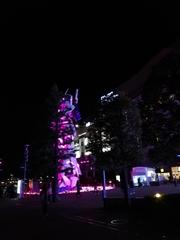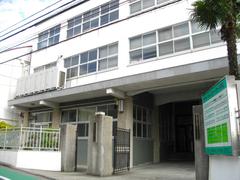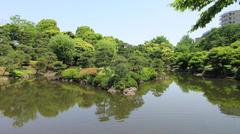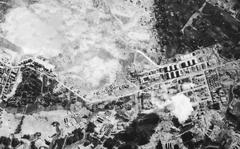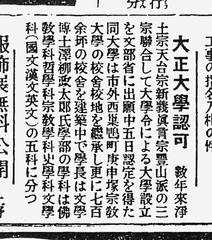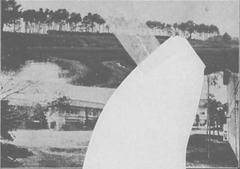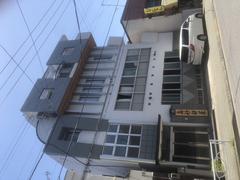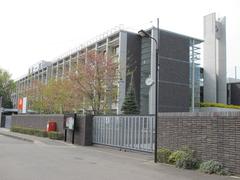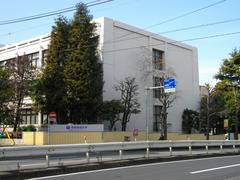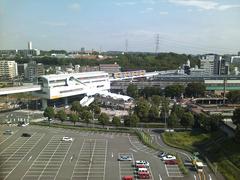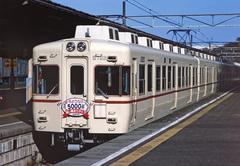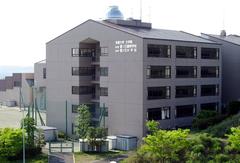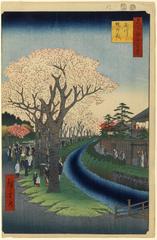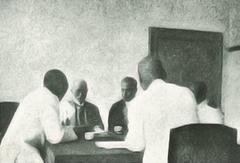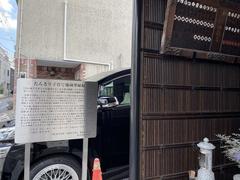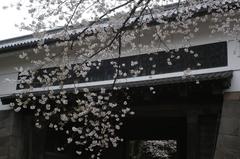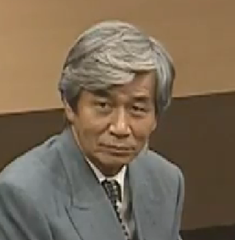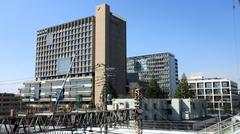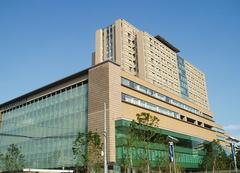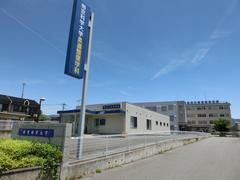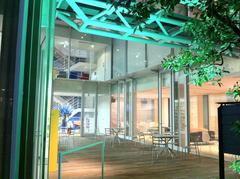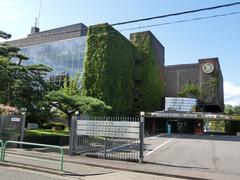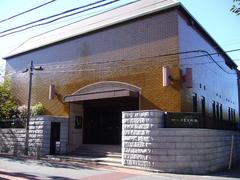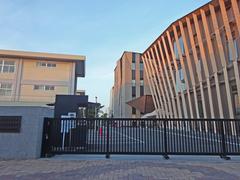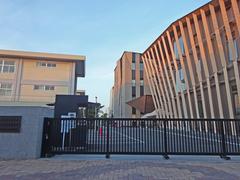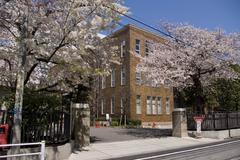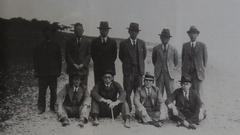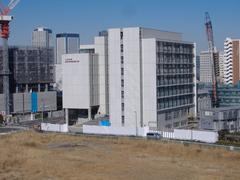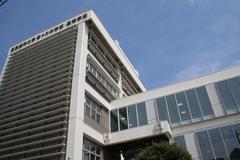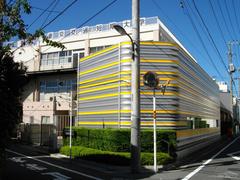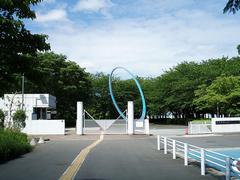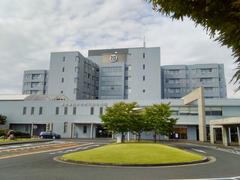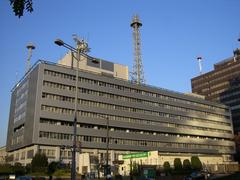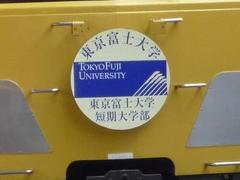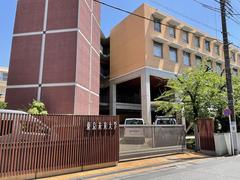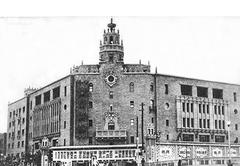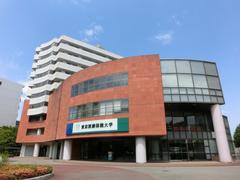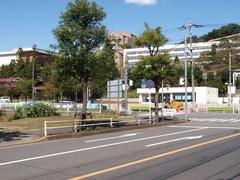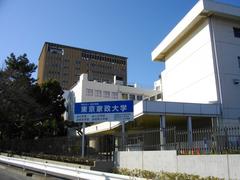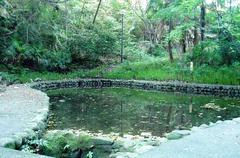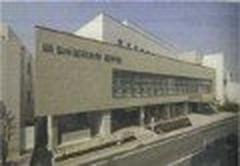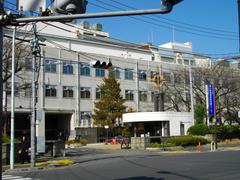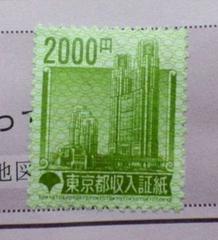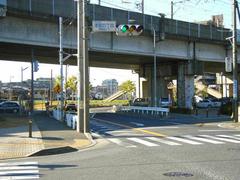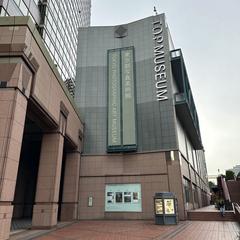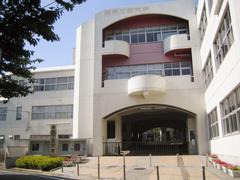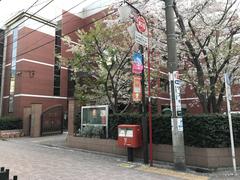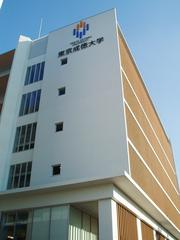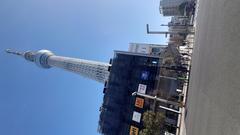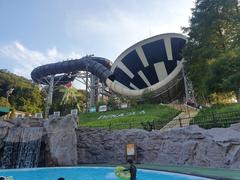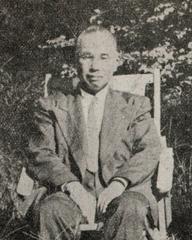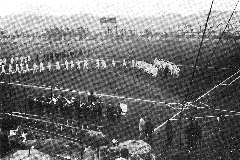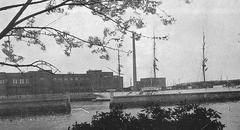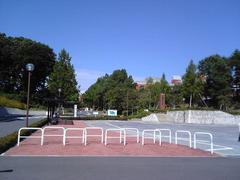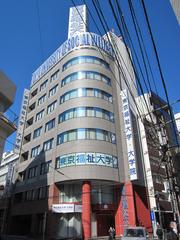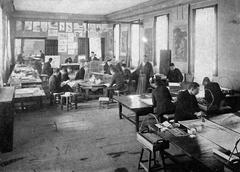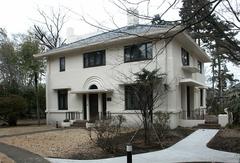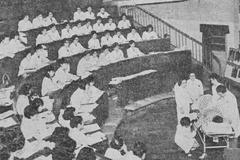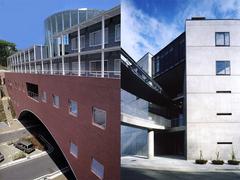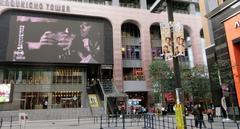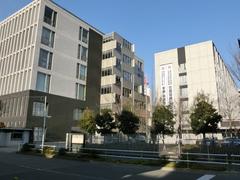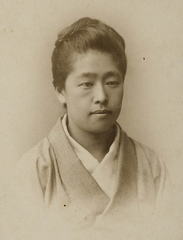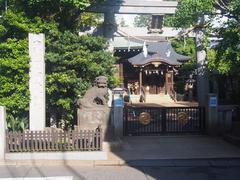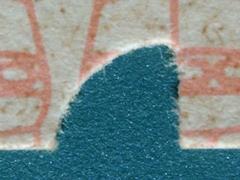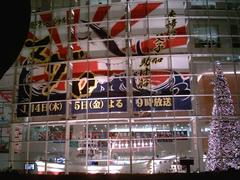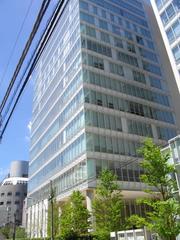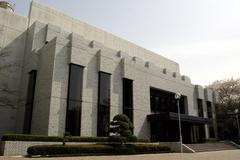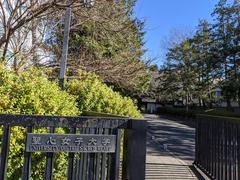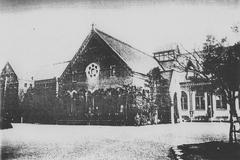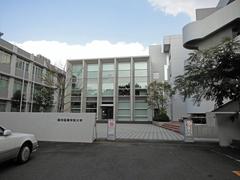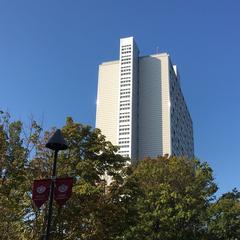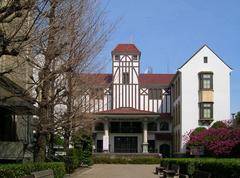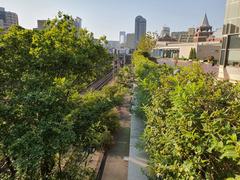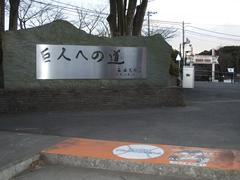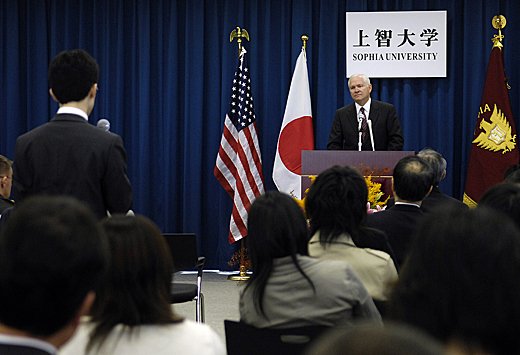
Sophia University Tokyo Visiting Guide: Tickets, Hours, and Insider Tips
Date: 14/06/2025
Introduction: The Significance of Sophia University in Tokyo
Nestled in Tokyo’s historic Yotsuya district, Sophia University (上智大学, Jōchi Daigaku) is a distinguished institution founded in 1913 by the Society of Jesus. Renowned for its Jesuit heritage and commitment to intercultural understanding, Sophia University serves as both a center for academic excellence and a cultural landmark in Japan. With a vibrant community comprising students from over 90 countries, the university seamlessly fuses tradition with innovation, offering visitors an immersive experience that showcases Tokyo’s past and cosmopolitan present.
This detailed guide provides essential information for visitors—covering campus access, visiting hours, guided tours, architectural highlights, travel tips, and nearby attractions. Whether you’re a prospective student, a tourist, or simply a cultural enthusiast, you’ll find everything you need to plan your visit and get the most out of your Sophia University experience.
For the latest practical details, including public transportation, event information, and accessibility, refer to Sophia University’s official website and visitor resources (Study at University). Enhance your campus tour with resources like the Audiala app for interactive maps and exclusive audio guides.
Table of Contents
- Introduction
- Campus Overview and Historical Context
- Essential Visitor Information
- Campus Highlights and Architectural Landmarks
- Green Spaces and Campus Beauty
- Academic and Student Life Facilities
- Cultural and Community Spaces
- Events and Engagement Opportunities
- Accessibility and Visitor Amenities
- Nearby Attractions and Neighborhood Guide
- Dining and Accommodation
- Language and Communication
- Souvenirs and Bookstore
- Frequently Asked Questions (FAQ)
- Summary and Final Tips
- Sources and Further Reading
Campus Overview and Historical Context
Sophia University stands as one of Japan’s oldest and most prestigious Catholic universities. Established by Jesuit missionaries, it has played a pivotal role in introducing Western academic traditions to Japan, and its motto “For Others, With Others” reflects a strong commitment to social justice and global citizenship. The university’s campus blends historical significance with a forward-looking educational ethos, drawing scholars and students from across the globe (Sophia University Official).
Essential Visitor Information
Visiting Hours and Entry
- Campus Hours: Open to visitors typically from 9:00 AM to 5:00 PM on weekdays. Hours may vary for specific buildings or during exam periods and university breaks.
- Admission: Free of charge for general campus access. Some special exhibitions or events may require tickets or prior registration.
- Guided Tours: Offered during Open Campus events and by advance reservation for groups. Virtual tours are also available (Sophia Admissions Visit Info).
How to Get There
- Address: 7-1 Kioi-cho, Chiyoda-ku, Tokyo, 102-8554
- Public Transport: A few minutes’ walk from Yotsuya Station (JR Chuo/Sobu, Marunouchi, and Namboku lines).
- By Car: No parking is available on campus; use nearby public parking lots (Sophia University Access Guide).
Accessibility
- Campus is wheelchair accessible, with ramps, elevators, and accessible restrooms.
- Assistance is available at information desks; contact the Admissions Office in advance for specific needs (Sophia Admissions Visit Info).
Campus Highlights and Architectural Landmarks
Historic and Modern Architecture
- Building No. 1: The symbolic heart of Sophia, completed in the early 20th century and core to its heritage.
- Sophia Tower (Building No. 6): A modern landmark built for the university’s centennial, housing classrooms and offices.
- Kulturheim: A historic hub for cultural exchange and lectures.
Though the original main building was destroyed in WWII, the campus retains a harmonious blend of historic and contemporary structures (Sophia University Historical Record).
Notable Academic Heritage
Sophia is home to the esteemed journal Monumenta Nipponica, a center for Japanese and East Asian studies. While the editorial office is not open to visitors, related archives and displays are periodically exhibited in the library (Monumenta Nipponica).
Green Spaces and Campus Beauty
- Cherry Blossom Bank: A beloved springtime attraction, with sakura trees planted by students, perfect for hanami and photography (Sophia Chronicle).
- Courtyards and Gardens: Offer tranquil retreats and spaces for study or informal gatherings, blending Japanese and Western landscaping elements.
Academic and Student Life Facilities
- Central Library: Houses over a million volumes, including extensive English-language resources. Select areas are open to visitors (Sophia University).
- Faculty of Liberal Arts: Attracts students from 90+ countries, with English as a common language. The International Student Lounge welcomes visitors (CIEE Sophia University).
- Sports Facilities: Athletic fields, tennis courts, and a gymnasium, used for university events and open campus activities.
Cultural and Community Spaces
- Sophia Chapel: A serene architectural highlight, hosting religious services, concerts, and public events (Sophia University).
- Student Cafeterias: Serve affordable Japanese and international cuisine and are open to visitors. International food fairs are held during festivals.
- Sophia Style Online: Features student stories and multimedia displays around campus, providing insight into campus life (Sophia Style Online).
Events and Engagement Opportunities
- Sophia Festival: Held every autumn, the festival features student performances, cultural exhibitions, and food stalls (Sophia University Events).
- Public Lectures & Symposiums: Regularly scheduled, often in English. Topics range from international relations to Japanese culture.
- Short-Term Programs: Include the Summer Session in East Asian Studies, with campus tours and cultural excursions (Sophia Admissions Short-term Programs).
Accessibility and Visitor Amenities
- Visitor Information Center: Located at the main entrance, providing maps, brochures, and event information in English and Japanese.
- Souvenir Shop: Offers Sophia-branded merchandise and limited-edition items, especially during festivals.
- Restrooms: Accessible facilities throughout campus.
Nearby Attractions and Neighborhood Guide
- Imperial Palace: Within walking distance, ideal for combining cultural sightseeing (Go Tokyo).
- Akasaka Palace & Kagurazaka: Explore traditional neighborhoods and gardens.
- Shinjuku District: Just minutes away by train, a hub for shopping, dining, and entertainment (Pace University Program Info).
Dining and Accommodation
- On-Campus Cafeterias: Open during visiting hours, serving a variety of dishes.
- Nearby Restaurants: Yotsuya and Shinjuku offer Japanese and international options, from casual eateries to fine dining (Rather Be Wandering: Tokyo in June).
- Accommodation: While there is no visitor lodging on campus, a range of hotels and guesthouses are available in the area. For international students, dormitory options are provided (Pace University Program Info).
Language and Communication
English is widely used in signage and within the Faculty of Liberal Arts. Admissions staff and many students are fluent in English, supporting international visitors (Sophia Admissions English Programs).
Souvenirs and Bookstore
The campus bookstore sells Sophia University merchandise, academic texts, and stationery—ideal for memorable keepsakes.
Frequently Asked Questions (FAQ)
Q: What are Sophia University’s visiting hours?
A: Generally 9:00 AM–5:00 PM on weekdays. Check for holiday or event exceptions.
Q: Is there an admission fee?
A: No, campus access is free. Special events may require tickets or registration.
Q: Are guided tours available?
A: Yes, during Open Campus and by reservation for groups. Virtual tours are also online.
Q: Is the campus wheelchair accessible?
A: Yes, with ramps, elevators, and accessible restrooms.
Q: Can I eat on campus?
A: Yes, visitors are welcome at campus cafeterias during opening hours.
Q: How do I get to Sophia University?
A: Use Yotsuya Station (JR, Marunouchi, Namboku lines); campus is a short walk away.
Summary and Final Tips
Sophia University offers a multifaceted experience, blending academic prestige, historical depth, and a welcoming, internationally diverse campus culture. Its central Tokyo location makes it an ideal base for exploring nearby landmarks such as the Imperial Palace and Shinjuku. Visitors enjoy easy access, no admission fees, and a range of amenities, including accessible facilities and multilingual support.
To make the most of your visit:
- Check the official website for current hours and event schedules.
- Visit during spring or autumn for the best campus scenery.
- Download the Audiala app for interactive campus guides and audio content.
- Explore nearby Tokyo attractions to enrich your itinerary.
Sophia University stands out as a must-visit landmark for anyone interested in Japanese education, culture, and urban life. Plan your visit and discover why this Jesuit campus remains a cherished destination in Tokyo.
Sources and Further Reading
- Sophia University Official Website (https://www.sophia.ac.jp/eng)
- Study at University: Sophia University in Japan (https://studyatuniversity.com/universities/sophia-university-in-japan/)
- EduRank: Sophia University Rankings (https://edurank.org/uni/sophia-university/rankings/)
- Top Universities: Sophia University Profile (https://www.topuniversities.com/universities/sophia-university)
- CIEE Sophia University Program (https://www.ciee.org/go-abroad/college-study-abroad/programs/japan/tokyo/arts-sciences-sophia-university)
- Go Tokyo: Tokyo Attractions (https://www.gotokyo.org/en/see-and-do/attractions/index.html)
- Pace University Program Info: Sophia Tokyo (https://www.pace.edu/sites/default/files/files/global-pathways/program-info-sophia-tokyo.pdf)
- Sophia University Events (https://www.sophia.ac.jp/eng)
- Rather Be Wandering: Tokyo in June Guide (https://ratherbewandering.com/tokyo-in-june/)
For more articles on university visits and Tokyo cultural landmarks, explore our recommended resources. Download the Audiala app for event updates, campus maps, and tips on making the most of your Tokyo adventure.
